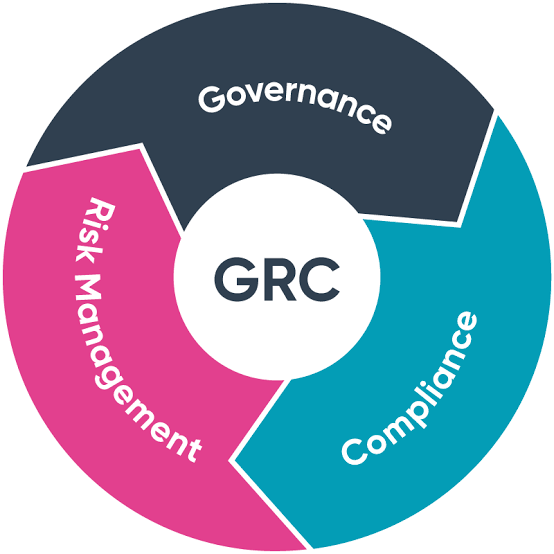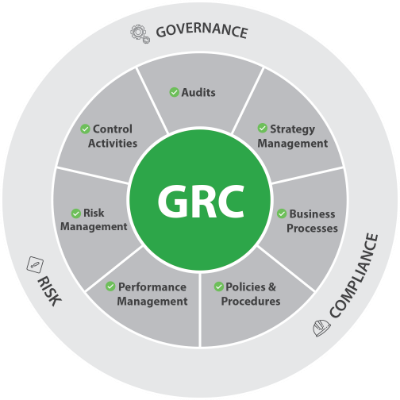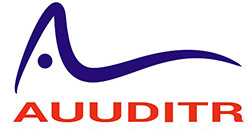Ensuring Compliance and Securing Data: The Power of GRC in Information Security
Governance, Risk Management, and Compliance (GRC) is a crucial aspect of information security that helps organisations to effectively manage risks, comply with regulations and laws, and maintain control over their IT systems and operations. The following article provides an overview of the role of GRC in information security and its importance for organisations.
What is Governance, Risk Management, and Compliance (GRC)?
GRC refers to the integrated processes and systems that organisations use to manage and control their information security risks, comply with regulations and laws, and ensure that their IT systems and operations align with their overall business objectives. The goal of GRC is to ensure that organisations are able to balance their risk and compliance obligations with their need to operate effectively and efficiently.

Governance
Governance refers to the overall management and control of an organisation’s IT systems and operations, including the processes and systems used to manage risks and comply with regulations and laws. This includes developing and implementing policies and procedures, setting up and maintaining effective systems for risk management and compliance, and establishing effective systems for monitoring and reporting on the performance of the organisation’s IT systems and operations.
Risk Management
Risk management refers to the processes and systems used by organisations to identify, assess, and manage the risks associated with their IT systems and operations. This includes identifying potential risks, assessing their likelihood and impact, and developing strategies to manage those risks.
Compliance
Compliance refers to the processes and systems used by organisations to comply with regulations and laws, such as data protection laws and standards, financial regulations, and privacy laws. This includes developing and implementing policies and procedures, setting up and maintaining systems for monitoring and reporting on compliance, and establishing processes for responding to non-compliance incidents.
Why is GRC Important for Information Security?
GRC is important for information security because it helps organisations to effectively manage their information security risks and comply with regulations and laws, while also ensuring that their IT systems and operations align with their overall business objectives. The following are some of the benefits of GRC for information security:

Improved risk management
By integrating risk management processes and systems into the overall GRC framework, organisations can ensure that they are identifying, assessing, and managing information security risks in a consistent and effective manner. This can help organisations to minimise the impact of security incidents and ensure that they are prepared to respond to potential threats.
Better compliance
By integrating compliance processes and systems into the overall GRC framework, organisations can ensure that they are complying with regulations and laws in a consistent and effective manner. This can help organisations to minimise the risk of legal and financial penalties and ensure that they are meeting their obligations under relevant data protection and privacy laws.
Aligned IT systems and operations
By integrating governance processes and systems into the overall GRC framework, organisations can ensure that their IT systems and operations are aligned with their overall business objectives. This can help organisations to ensure that their IT systems and operations are delivering the desired results and supporting their overall business objectives.
Better decision-making
By integrating all aspects of GRC into a single framework, organisations can access a comprehensive view of their information security risks, compliance obligations, and IT systems and operations. This can help organisations to make better informed decisions and allocate resources more effectively to manage their information security risks and comply with regulations and laws.
Conclusion
In conclusion, Governance, Risk Management, and Compliance (GRC) plays a critical role in information security by helping organisations to effectively manage their information security risks, comply with regulations and laws, and align their IT systems and operations with their overall business objectives. By integrating all aspects of GRC into a single framework, organisations can access a comprehensive view of their information


